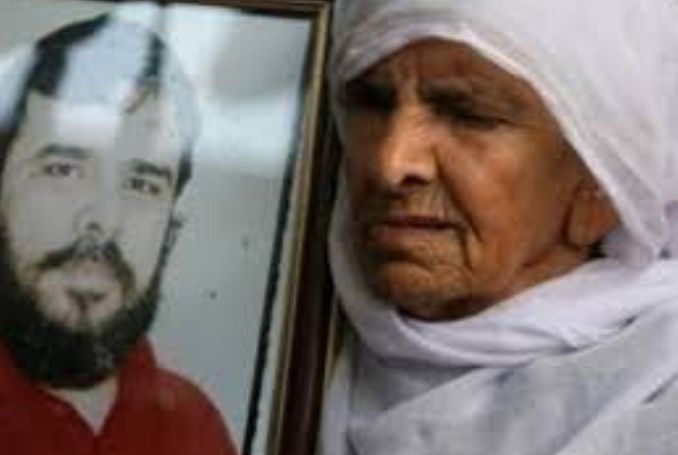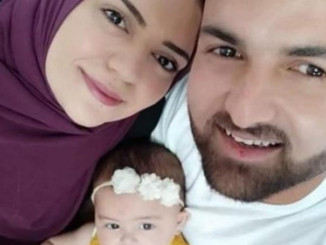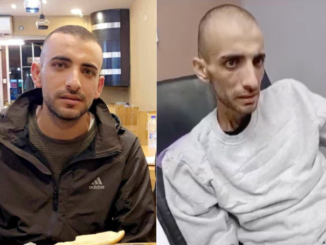
(These Chains Will Be Broken: Palestinian Stories of Struggle and Defiance in Israeli Prisons, by Ramzy Baroud, Clarity Press, Inc., 2020)
Fyodor Dostoevsky wrote that “the degree of civilization in a society can be judged by entering its prisons” — an observation nowhere more grimly true than in a society whose very existence entails the confinement of another people. Ramzy Baroud’s new book, “These Chains Will Be Broken: Palestinian Stories of Struggle and Defiance in Israeli Prisons”, illustrates with excruciating directness why contemporary Palestine comes into sharpest focus inside the prisons Israel has built for those who resist its occupation of their land. As seen through Baroud’s book, these cages tell a double tale: on the one hand, of the ugliness of a society erected on a bedrock of dispossession; on the other, of the raw resolve of Palestinians who, against all odds, refuse to be erased from history.
“These Chains Will Be Broken” is a collection of first-hand narratives describing the experiences of Palestinian detainees, taken either from the prisoners themselves or from others who know them intimately. (The story of Faris Baroud, the subject of the book’s final chapter and a distant relative of the author, is narrated from writings by his mother Ria, who died in 2017; her son died nearly two years later, still behind bars.)
Baroud — journalist, scholar, media consultant — has devoted several previous books to the Palestinian struggle as seen from the perspective of the Palestinians themselves. In “These Chains Will Be Broken,” he goes a step further, withholding his own narrative voice so that the detainees can tell their stories in their own way, thus transporting the reader directly into their experience. The result is a moving and deeply disturbing reminder that, at bottom, the story of Palestine is a constant refrain of imprisonment and resistance.
“Prison,” writes Khalida Jarrar (herself one of the book’s subjects) in an illuminating foreword, “is a moral position that must be made daily, and can never be put behind you.” Let this be a warning: the reader of “These Chains Will Be Broken” is repeatedly forced to take up such a moral position as, in chapter after chapter, Palestinian prisoners lay bare their privations, their hopes, their disappointments, and their determination to endure.
Even those familiar with the facts of the struggle may be unprepared for its starkness when seen, as these Palestinians see it, behind prison walls rather than buried inside webs of Israeli propaganda. In a hatchet job published (alas) by the prestigious Yale University Press in 2006, WINEP mouthpiece Matthew Levitt dispatched Majdi Hamad in a single sentence as “a Hamas terrorist sentenced to a life term for killing fellow Palestinians — presumably suspected informers — in Gaza.” But when Hamad first appears in Baroud’s book, through the eyes of fellow prisoner Mohammad al-Deirawi, he makes a very different impression: “He was being dragged into his cell in the underground dungeon of Nafha by a number of armed guards. They were hitting and kicking him everywhere and, despite his shackles, he fought back like the lion he was. His face was covered in blood.” (We also learn from the book that this “lion” is “gentle and kind to his comrades.”)
Western readers may be similarly surprised by the dignity of al-Deirawi himself, who — after receiving a 30-year sentence in an Israeli military court — is asked by the judge, not if he has anything to say, but whether he is prepared to “apologize.”
“I have nothing to apologize for,” al-Deirawi recalls telling the judge. “I will never apologize for resisting the occupation, defending my people, fighting for my stolen rights. But you need to apologize, and those who demolish homes while their owners are still inside are the ones who must apologize. Those who kill children, occupy land and commit crimes against unarmed, innocent people, are the ones who need to apologize.” “He did not like my answer,” al-Deirawi adds, in one of the book’s rare flashes of humor.
The narratives in Baroud’s collection contain predictable descriptions of torture and mistreatment, but some of the most wrenching details involve acts of completely pointless sadism. A guard offers to give a prisoner a cup of tea and then pours scalding water on her extended hand. A shattered ankle is “treated” with an ice pack. An incarcerated child, the night before her release, is falsely told she is about to receive a life sentence. A woman held in solitary confinement is forced to watch as a cat she has befriended dies, along with her kittens, after being poisoned by the guards.
What is more, the prisoners’ stories confirm that these are not isolated actions; they arise from the logic of a system that is designed to dehumanize its victims as well as to intimidate them. Prisoner after prisoner, for instance, offers a horrifying description of the “bosta” — the special vehicle used to transport Palestinians from prison to military court and back again. The extravagant cruelty of this dungeon on wheels serves no legitimate purpose; evidently, from their captors’ point of view, keeping Palestinians penned up in cramped positions, handcuffed and shackled, in tiny, overheated metal cages for 8 to 12 hours at a time represents an end in itself.
But all this is only part of the story told in Baroud’s collection. There are remarkable moments of beauty and courage. A prisoner separated from his young daughter for decades describes the happiness he felt upon hearing that his daughter learned, while in the first grade, the true reason for his imprisonment. Under constant harassment, a handful of prisoners manage to earn high school diplomas. A female detainee taunts “a huge man” the guards have dispatched to her cell: “If you want to rape me, go ahead; you raped my land and my people, so go ahead and rape me.” Her defiance puts an end to the sexual threats — though the guards continued to torture her, she says, with cigarettes and with electric shocks to her breasts.
Another prisoner devotes nearly all of his time to the study of languages, translating books and articles on a wide range of political subjects — a calling he pursues with undiminished zeal even after his entire store of 4,000 articles is confiscated (without explanation) in a raid by Israeli guards. Yet another prisoner describes how he and his comrades persisted in a hunger strike, despite assaults and force-feeding, until their demands were finally met.
Baroud’s decision not to divide his subjects based on the nature of the resistance for which they were imprisoned — whether violent or nonviolent, whether enacted inside Israel proper or in the Occupied Territories — will make some readers uncomfortable. That is clearly deliberate. In his introduction, Baroud insists that “[i]t would be utterly unfair to box Palestinian prisoners into convenient categories of victims or terrorists, because both classifications render an entire nation either victim or terrorist, a notion that does not reflect the true nature of the decades-long Palestinian struggle against colonialism, military occupation and the entrenched Israeli apartheid.”
The unrelenting first-person character of these narratives bears out Baroud’s insight. Amid the inescapable degradations and encroachments of prolonged confinement, political convictions are bound to be lived in terms of shared passion, not of detail. Anyone who seeks a different framework for understanding Palestine and the tactics of its defenders, this book argues, must first destroy the cages that define the boundaries of Palestinian action. As long as Israel’s occupation renders Palestine one vast prison, resistance — by whatever means — will be the only standard by which Palestinian life can be measured.
And the prisoners represented here are well aware of this. As the poet (and former prisoner) Dareen Tatour exclaims at the end of her chapter in “These Chains Will Be Broken”:
The spirit will not bow down,
its perseverance will not perish…
For moons to rise in our skies
We have to live through this darkness.
(A version of this article first appeared in Mondoweiss)
– Michael Lesher, an author and lawyer, has published numerous articles dealing with child sexual abuse and other topics, including the Israel-Palestine conflict. He is the author of the recent book Sexual Abuse, Shonda and Concealment in Orthodox Jewish Communities (McFarland & Co., Inc.), which focuses on cover-ups of abuse cases among Orthodox Jews. He lives in Passaic, New Jersey. Visit his website www.MichaelLesher.com







